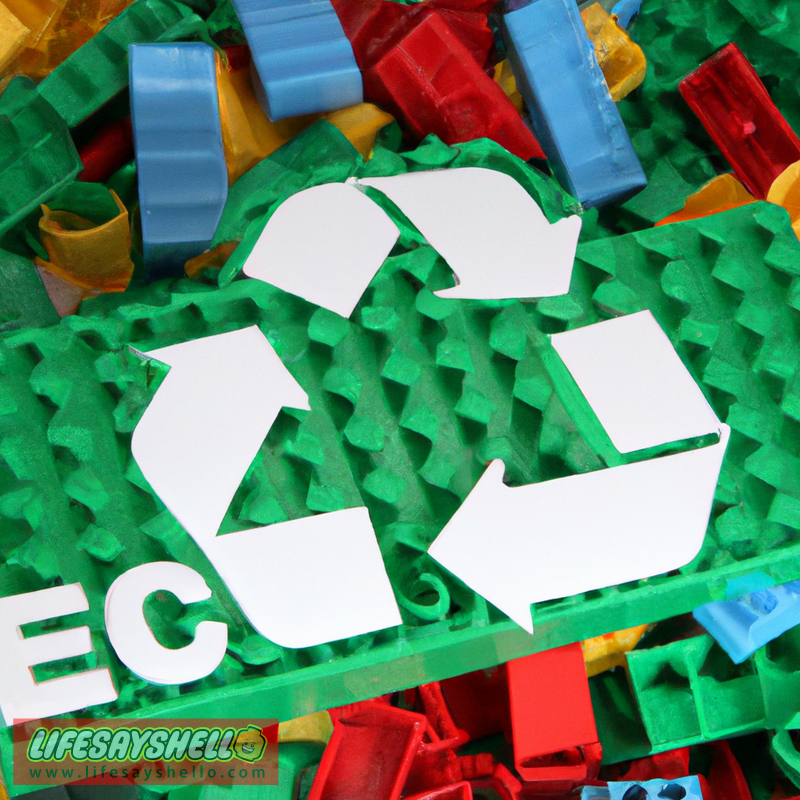The Many Benefits of Recycling: 7 Reasons You Should Start Today

Recycling is one of the easiest and most effective ways for individuals to make a positive impact on the environment. Although many of us participate in recycling programs, we don’t always fully understand the wide-ranging benefits that recycling provides. Beyond the basic idea of turning old items into new products, recycling offers numerous advantages for the environment, economy, and even our wallets.
In this article, we’ll explore the top 7 reasons why recycling is important and why you should be diligent about recycling anything and everything that you can. We’ll dig into how recycling reduces pollution and landfill waste, conserves natural resources and energy, creates jobs, and saves money. Read on to learn just how beneficial recycling can be!
1. Recycling Reduces Waste Sent to Landfills
One of the main benefits of recycling is reducing the amount of waste sent to landfills. Landfills are essentially giant holes in the ground where trash is buried and compacted. Sending less trash to landfills is beneficial for several reasons.
First, it helps cut down on landfill expansion. Landfills take up a massive amount of space, and finding new sites for landfills is increasingly difficult. The less waste dumped in landfills, the less landfills need to expand. Recycling helps take pressure off constantly needing new landfills.
Second, recycling reduces the harmful greenhouse gases that are emitted from landfills. As waste decomposes in landfills, methane gas is released into the atmosphere. Methane is a powerful greenhouse gas that is up to 84 times more potent than carbon dioxide in trapping heat. Reducing landfill methane emissions can significantly help combat climate change.
When we recycle materials like paper, plastic, glass and metals, they get reprocessed and made into new products instead of being dumped in landfills. This diversion of waste avoids methane production and keeps greenhouse gases out of the atmosphere. According to the EPA, recycling resulted in avoiding over 198 million metric tons of carbon dioxide emissions in 2018 alone, equivalent to taking over 42 million cars off the road for a year.
2. Recycling Conserves Natural Resources
Another major benefit of recycling is reducing the need to continually extract new natural resources from the earth. Creating products from raw natural materials like timber, minerals, oil and ore results in habitat destruction, increased pollution, and resource depletion.
Recycling reduces the need for extracting, refining, and processing virgin materials. Manufacturing goods from recycled material uses significantly less energy and water compared to making products from new raw materials. It also reduces mining and logging, preserving natural habitats.
For example, making aluminum cans from recycled aluminum consumes 95% less energy than creating cans from raw aluminum ore. Using recycled paper lowers water pollution by 35% and air pollution by 74%. Recycling one glass bottle saves enough energy to power a computer for 25 minutes. It’s clear that reusing materials provides massive energy and resource savings over extraction.
3. Recycling Reduces Air and Water Pollution
The extraction, refining, and processing of raw materials used in manufacturing creates immense amounts of water and air pollution. Recycling reduces the need for these processes, thus lowering air and water emissions.
Extracting metal ore, logging forests, mining minerals, and drilling for oil all heavily pollute the air from power equipment emissions, dust, and other contaminants. Refining and smelting metal ore and oil drilling and refining release sulfur dioxide, nitrogen oxides and volatile organic compounds into the atmosphere.
Logging and mining also increase erosion that pollutes rivers, lakes, and oceans. Manufacturing using these virgin resources generates wastewater contaminated with toxic chemicals, oils, and solvents. Recycling substantially lowers these massive sources of air and water pollution by reducing the demand for new raw materials.
4. Recycling Saves Energy and Reduces Emissions
As mentioned earlier, using recycled materials in manufacturing takes far less energy than creating items from scratch. Recycling saves energy in a number of ways:
- Less power is needed to extract, transport, and process recycled materials vs. raw materials.
- Recycled materials are typically easier and more efficient to work with in manufacturing.
- Less waste goes into landfills, saving energy related to waste management.
This saved energy translates into lower greenhouse gas emissions from power generation, manufacturing plants, equipment and transportation. In 2018 alone, recycling in the U.S. reduced carbon dioxide emissions equivalent to removing over 15 million cars from the road for a year.
Recycling metals, in particular, provides massive energy savings over extracting and processing virgin ore. Making steel from recycled scrap uses 75% less energy. Recycling aluminum cans saves 95% of the energy required to make aluminum from bauxite ore.
By recycling, we significantly reduce energy consumption and emissions, which is crucial for combating climate change.
5. Recycling Conserves Resources for the Future
Recycling allows us to turn old, discarded materials into new products, conserving resources in the process. By reusing materials rather than continually harvesting new raw materials, we help sustain resources for current and future generations.
Some key ways recycling conserves resources:
Recycled metals can be remelted and reshaped into new metal products indefinitely. This avoids the need to keep extracting finite metal ores from the earth.
Recycled paper makes up 37% of the raw material used to produce new paper. This reduces the number of trees that need to be cut down for paper production.
Recycled plastic can be reprocessed and remolded into many new plastic products. Doing so reduces the amount of new plastic made from petroleum oil.
Composting food scraps and yard waste produces a natural fertilizer that can replenish soil nutrients. This reduces the need for chemical fertilizers.
Recycling and composting divert waste from landfills, extending the lives of existing landfills. Less landfill expansion conserves space.
Electronic waste recycling recovers valuable and finite resources like gold, silver, copper, palladium and platinum for reuse.
In all these ways, recycling allows us to get the maximum use out of resources, reducing the rate of resource depletion. This conservation of resources will be crucial as the global population continues to grow and consume more. Recycling provides sustainability for the future.
6. Recycling Creates Jobs and Boosts the Economy
Recycling also provides significant economic benefits by creating jobs and generating revenue in the recycling industry. The recycling process requires an entire system of people and facilities to collect, sort, process, and convert recycled materials.
In the U.S. alone, recycling directly employs over 230,000 people at over 5,300 materials recovery facilities and recycling centers. Many curbside recycling programs use local waste management employees to collect and sort recyclables. This boosts local employment.
Recycled materials are also processed by workers at various facilities before being made into new products. All these jobs contribute to the economy. The Institute of Scrap Recycling Industries estimates that the U.S. recycling industry generates over $110 billion in revenue each year.
The widespread adoption of recycling programs has led to the growth of the entire recycling industry. This industry expansion provides economic benefits through job creation, household income, and tax revenue. Increasing recycling rates even further would provide additional employment and economic opportunities.
7. Recycling Saves You Money
At a personal finance level, recycling can save individuals and families money in a couple ways:
Curbside recycling programs reduce waste collection costs because less trash is sent to the landfill. This helps lower waste management budgets, reducing costs for households.
Processing and selling recycled materials generates revenue, which can help offset recycling program costs and reduce household fees.
Recycling certain items, like electronics, allows you to recover monetary value from the recycled metals.
Bringing recyclables to buy-back centers earns you money directly. In many states, you can return empty beverage containers to redemption centers to collect the deposit value.
Composting food and yard waste at home creates free natural fertilizer, saving you money on fertilizer.
While it may take a small amount of effort to sort and prepare recyclables, the small personal savings and larger societal benefits make recycling worthwhile.
Conclusion
As we have seen, recycling provides a tremendous number of benefits, from reducing pollution and waste to conserving resources and energy. Recycling is one of the most effective and accessible ways that individuals can make an environmental impact.
Beyond the obvious reprocessing of materials, recycling has far-reaching positive effects on the planet. Simply by taking a few minutes to properly sort your waste, you can contribute to massive reductions in greenhouse gases, energy use, and resource depletion.
With the increasing concerns about climate change, resource limitations, and environmental preservation, recycling will only become more crucial over time. We must drastically increase our recycling rates globally to achieve a sustainable society. The next time you finish a can of soda, juice box, or cereal, make sure to recycle it! Our future depends on the participation of each and every one of us.




Comments